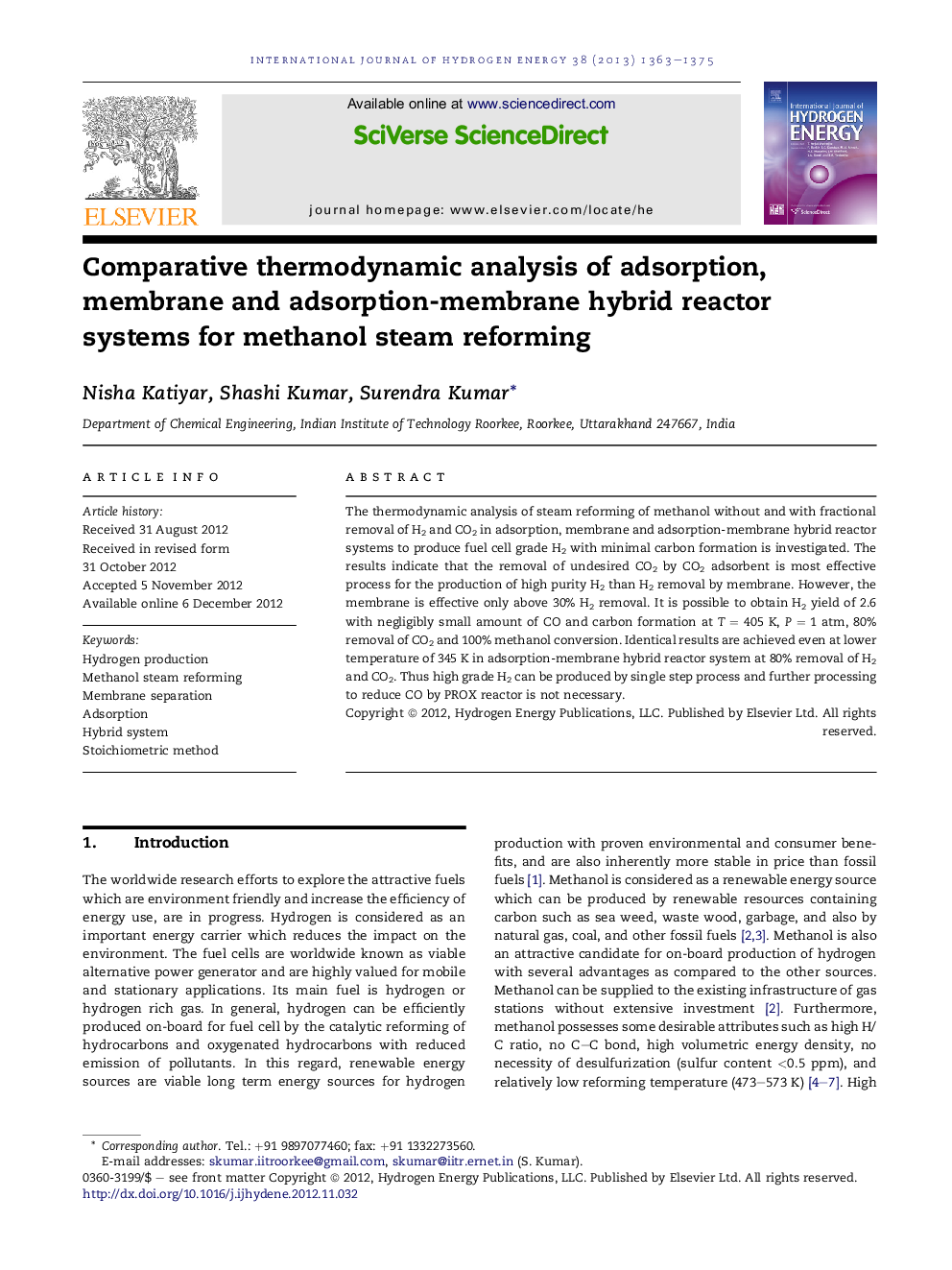| کد مقاله | کد نشریه | سال انتشار | مقاله انگلیسی | نسخه تمام متن |
|---|---|---|---|---|
| 1275920 | 1497542 | 2013 | 13 صفحه PDF | دانلود رایگان |

The thermodynamic analysis of steam reforming of methanol without and with fractional removal of H2 and CO2 in adsorption, membrane and adsorption-membrane hybrid reactor systems to produce fuel cell grade H2 with minimal carbon formation is investigated. The results indicate that the removal of undesired CO2 by CO2 adsorbent is most effective process for the production of high purity H2 than H2 removal by membrane. However, the membrane is effective only above 30% H2 removal. It is possible to obtain H2 yield of 2.6 with negligibly small amount of CO and carbon formation at T = 405 K, P = 1 atm, 80% removal of CO2 and 100% methanol conversion. Identical results are achieved even at lower temperature of 345 K in adsorption-membrane hybrid reactor system at 80% removal of H2 and CO2. Thus high grade H2 can be produced by single step process and further processing to reduce CO by PROX reactor is not necessary.
► Thermodynamic analysis of reactor systems is done by stoichiometric approach.
► High removal of H2 and CO2 produces fuel cell grade H2 at low temperature.
► The influence of CO2 adsorption is much more than H2 removal by membrane.
► Percent reduction in CO and carbon formation is more in hybrid reactor.
► Suitable catalysts are suggested to suppress CO2, CH4 and carbon formation.
Journal: International Journal of Hydrogen Energy - Volume 38, Issue 3, 6 February 2013, Pages 1363–1375